Vietnam Central Inspection Committee Chairman Explores Innovation Collaboration at Pangyo Startup Campus
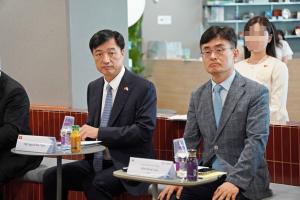
Nguyen Duy Ngoc (left), Chairman of Vietnam’s Central Inspection Committee, and Hyun-gon Kim, President of Gyeonggi Business & Science Accelerator
Vietnam’s top innovation official visits Pangyo Startup Campus, exploring smart city success and bilateral cooperation with Korea’s tech ecosystem.
PANGYO, GYEONGGI-DO, SOUTH KOREA, August 14, 2025 /EINPresswire.com/ -- Nguyen Duy Ngoc, Chairman of the Central Inspection Committee of the Communist Party of Vietnam and First Vice Chairman of the Steering Committee for Science, Technology, Innovation, and Digitalization, visited the Gyeonggi Startup Campus in Pangyo on the morning of August 12. He accompanied General Secretary To Lam of the Central Committee of the Communist Party of Vietnam during his state visit to Korea (August 10–13). He led a 16-member Vietnamese delegation during this event.The delegation received a briefing on Pangyo Techno Valley in the LINK on the second floor of the Pangyo Startup Campus, guided by the Techno Valley Innovation Headquarters. They also toured the incubator space and the Digital Open Lab on the third floor of the same building and posed for a commemorative photo.
At the briefing, Chairman Nguyen asked about the secrets behind Pangyo Techno Valley’s success. In response, Hyun-gon Kim, President of the Gyeonggi Business & Science Accelerator (GBSA), outlined five key factors.
First, the central and local governments jointly developed a master plan for the city, allocating about 60% of the new urban area to Techno Valley. Gyeonggi Province offered land at low interest rates and provided affordable leases and sales of public land to allow companies to settle stably.
Second, Pangyo’s proximity to Seoul provides excellent access to logistics and transportation, making it an ideal location for business operations.
Third, from the outset, the area was zoned exclusively for advanced industries such as IT, BT, and CT, fostering industrial concentration and a specialized industrial ecosystem.
Fourth, open innovation has flourished as large corporations and small-to-medium enterprises (SMEs) collaborated to develop and supply products and services, creating a mutually beneficial environment.
Fifth, easy access to top universities in Seoul and Gyeonggi Province, along with a well-balanced residential and working environment, has attracted and retained young, talented professionals.
President Kim added, “In Pangyo, the ratio of residents to workers is nearly 1:1, and the companies generate annual economic value nearly 40 times their investment. As a smart city prototype, Pangyo has simultaneously achieved efficient urban management, convenience in daily life, and a favorable business environment.”
He also introduced Pangyo’s startup support system. Currently, more than 100 government and local government programs are in operation, offering stage-based support, including free incubator space, technology and sales network support, investment attraction training, direct investment, connections to large corporate CVCs and VCs, and participation in overseas exhibitions and investor matchmaking.
When Chairman Nguyen asked whether cooperation between major Vietnamese provinces and Pangyo Techno Valley was feasible, President Kim responded, “Since 2016, we’ve operated the Gyeonggi Business Center (GBC) in Ho Chi Minh City to support business collaboration and trade. We plan to open another center in Hanoi next year.” He added, “The more collaboration we have between local governments and Pangyo, the better,” expressing his strong interest in expanding bilateral exchanges.
Kim Seung Yeon
Gyeonggi Business & Science Accelerator
+82 31-776-4834
email us here
Visit us on social media:
LinkedIn
Instagram
Facebook
YouTube
Other
Legal Disclaimer:
EIN Presswire provides this news content "as is" without warranty of any kind. We do not accept any responsibility or liability for the accuracy, content, images, videos, licenses, completeness, legality, or reliability of the information contained in this article. If you have any complaints or copyright issues related to this article, kindly contact the author above.
Bio-Pharmaceutical Logistics Market 2025-2029: Unveiling Growth Developments with the Latest Updates
Demand for Chocolate Syrup Market is forecasted to reach a value of US $9.05 billion by 2029
Vending Machine Market Expected to Surpass $37.2 Billion by 2032 | North America Lead
Więcej ważnych informacji
 Jedynka Newserii
Jedynka Newserii

 Jedynka Newserii
Jedynka Newserii

Konsument

Polacy nie korzystają z hossy trwającej na warszawskiej giełdzie. Na wzrostach zarabiają głównie inwestorzy zagraniczni
Od października 2022 roku na rynkach akcji trwa hossa, nie omija ona także warszawskiej giełdy. Mimo to inwestorzy indywidualni odpowiadają zaledwie za kilkanaście procent inwestycji, a o wzrostach decyduje i na nich zarabia głównie kapitał z zagranicy. Widać to również po napływach i odpływach do i z funduszy inwestycyjnych. Zdaniem Tomasza Koraba, prezesa EQUES Investment TFI, do przekonania Polaków do inwestowania na rodzimej giełdzie potrzeba zysków z akcji, informacji o tych zyskach docierającej do konsumentów oraz czasu.
Polityka
Obowiązek zapełniania magazynów gazu w UE przed sezonem zimowym ma zapewnić bezpieczeństwo dostaw. Wpłynie też na stabilizację cen

Unia Europejska przedłuży przepisy z 2022 roku dotyczące magazynowania gazu. Będą one obowiązywać do końca 2027 roku. Zobowiązują one państwa członkowskie do osiągnięcia określonego poziomu zapełnienia magazynów gazu przed sezonem zimowym. Magazyny gazu pokrywają 30 proc. zapotrzebowania Unii Europejskiej na niego w miesiącach zimowych. Nowe unijne przepisy mają zapewnić stabilne i przystępne cenowo dostawy.
Infrastruktura
Gminy zwlekają z uchwaleniem planów ogólnych zagospodarowania przestrzennego. Może to spowodować przesunięcie terminu ich wejścia w życie

Reforma systemu planowania i zagospodarowania przestrzennego rozpoczęła się we wrześniu 2023 roku wraz z wejściem w życie większości przepisów nowelizacji ustawy z 27 marca 2003 roku. Uwzględniono w niej plany ogólne gminy (POG) – nowe dokumenty planistyczne, za których przygotowanie mają odpowiadać samorządy. Rada Ministrów w kwietniu br. uchwaliła jednak ustawę o zmianie ustawy z 7 lipca 2023 roku, a jej celem jest zmiana terminu obowiązywania studiów uwarunkowań i kierunków zagospodarowania przestrzennego gmin na 30 czerwca 2026 roku. Wskazana data może nie być ostateczna z uwagi na to, że żadna z gmin nie uchwaliła jeszcze POG.
Partner serwisu
Szkolenia

Akademia Newserii
Akademia Newserii to projekt, w ramach którego najlepsi polscy dziennikarze biznesowi, giełdowi oraz lifestylowi, a także szkoleniowcy z wieloletnim doświadczeniem dzielą się swoją wiedzą nt. pracy z mediami.
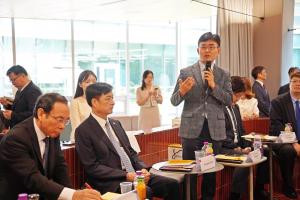
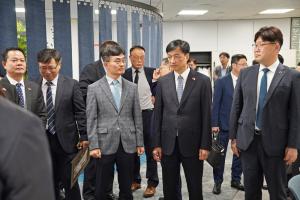
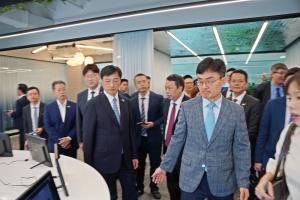
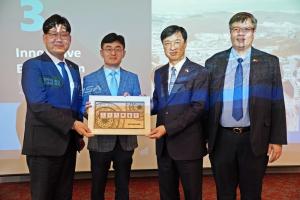








.gif)

 |
| |
| |
|